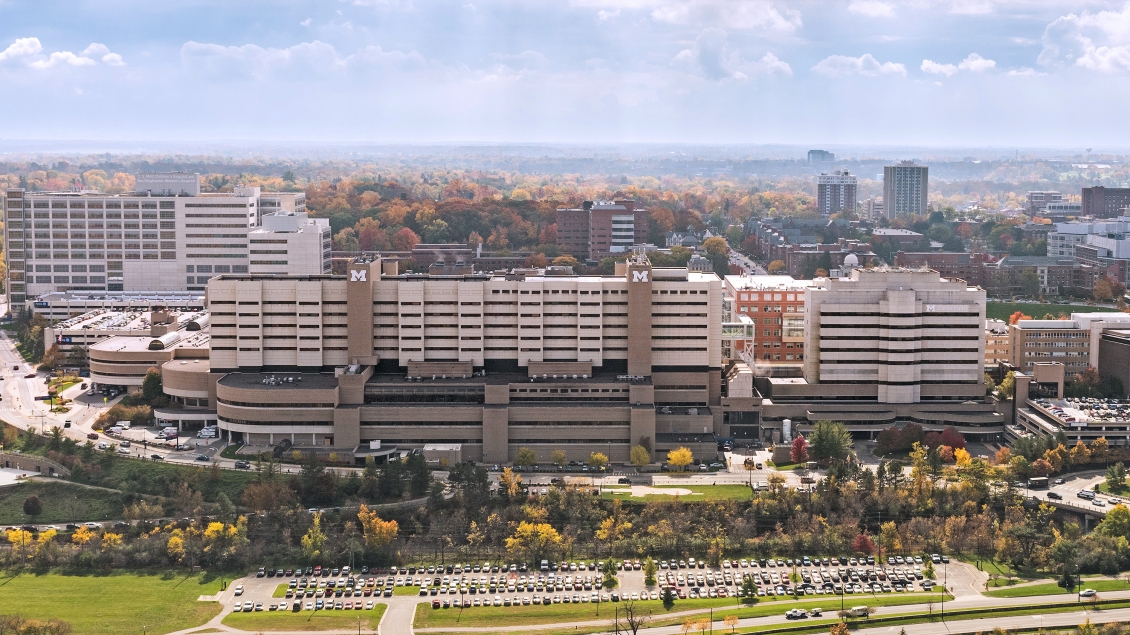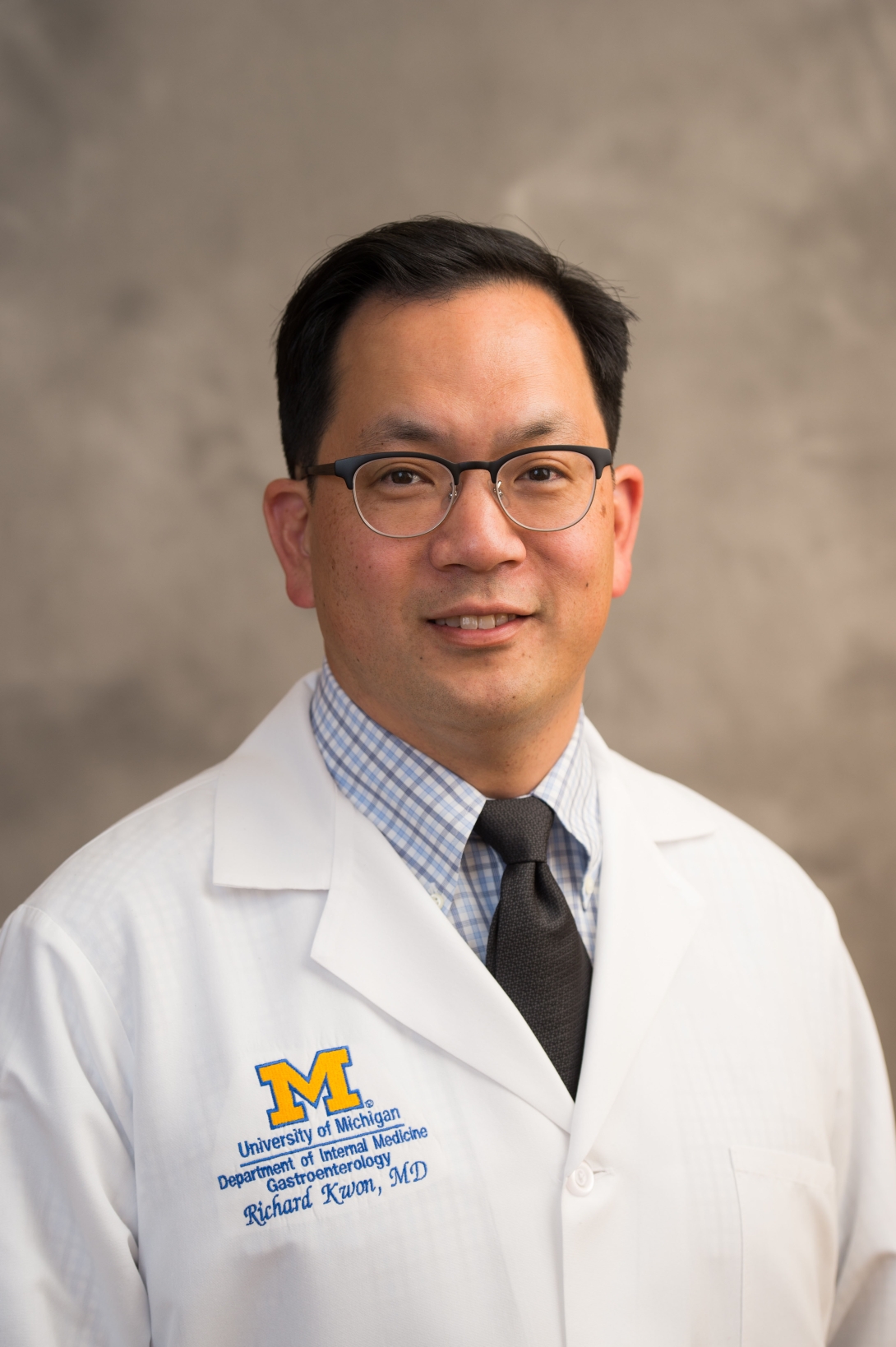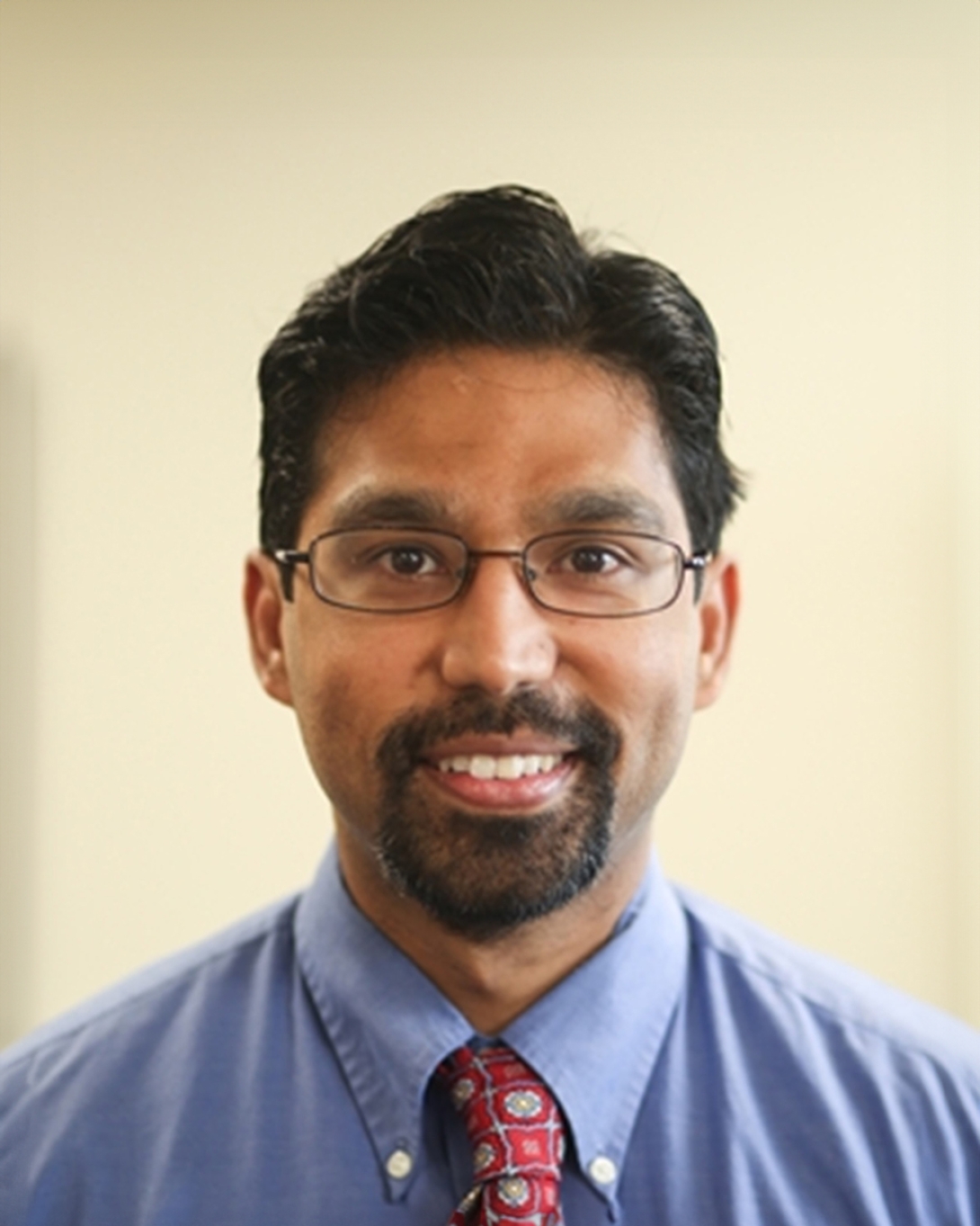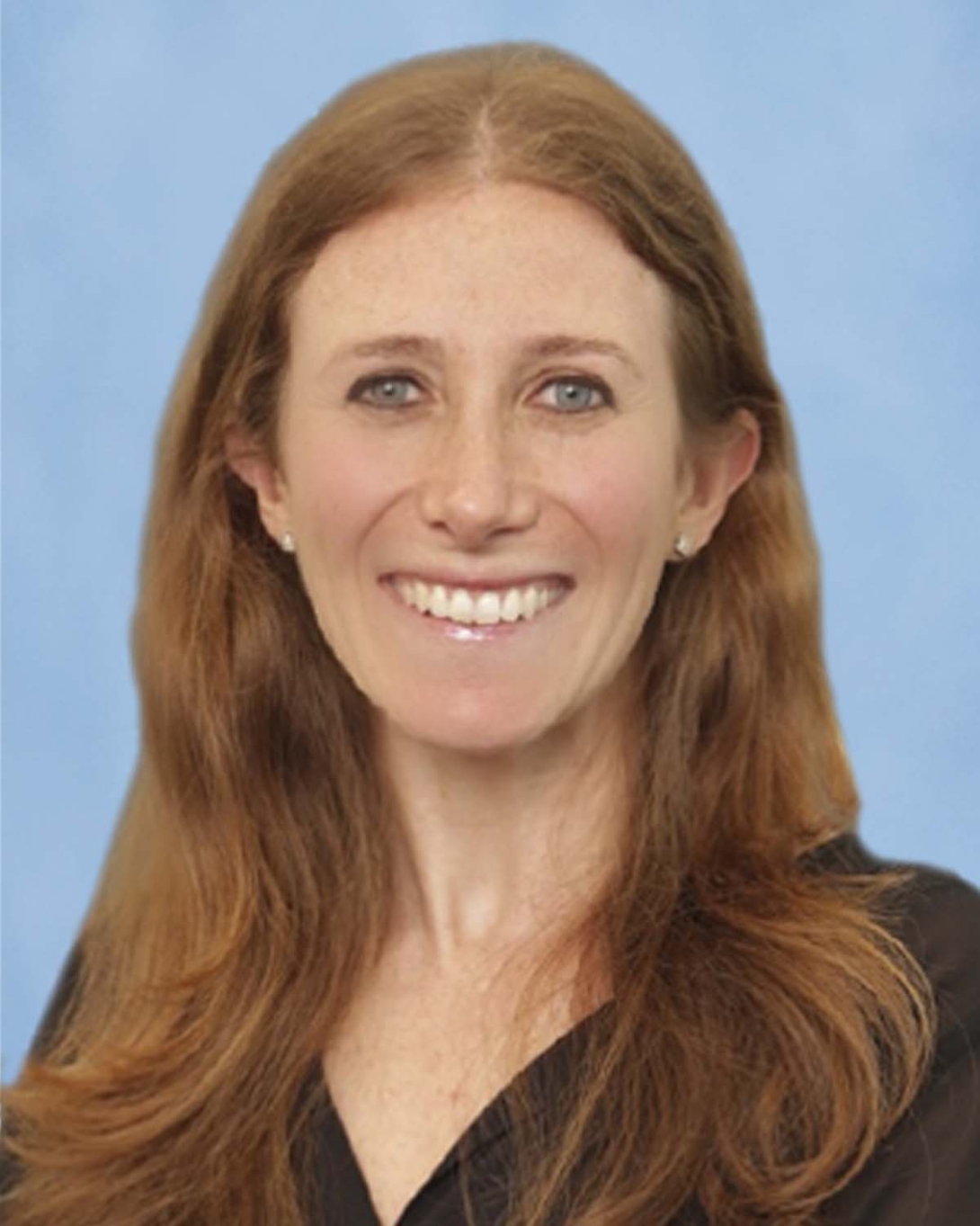
The Division of Gastroenterology & Hepatology Interventional Endoscopy Program strives to provide state-of-the-art clinical care, education and research. Our program at U-M Medical School includes five interventional endoscopists and three mid-level providers. Our faculty have contributed to the development of national guidelines on standard endoscopic practices, are part of journal editorial boards, and are often invited as speakers at national conferences.
We care for patients referred from all over the state of Michigan by cancer specialists, gastroenterologists, surgeons and primary care providers. Our team offers expertise in pancreatobiliary endoscopy, third-space endoscopy and bariatric endoscopy. Using a multidisciplinary approach and cutting-edge technologies, we provide care to patients with benign and malignant pancreatic disorders, gallbladder and bile duct diseases, cancers of the entire GI tract, Barrett’s esophagus, achalasia, obesity, post-surgical complications and complex GI polyps.
We perform approximately 1,300 endoscopic retrograde cholangiopancreatography (ERCP) and 1,200 endoscopic ultrasound (EUS) procedures annually, in addition to a wide variety of other interventions. These advanced procedures are performed in the University of Michigan Health Medical Procedure Unit. Our three interventional rooms are equipped with the most advanced medical technology.
The program actively conducts clinical research in pancreatic and biliary disorders, early detection of pancreatic cancer, advanced imaging modalities, bariatric endoscopy and novel endoscopic devices. In addition, our program is committed to the training of fellows in the GI Fellowship Program and the Advanced Endoscopy Fellowship Program.
3912 Taubman Center, SPC 5362
1500 E. Medical Center Drive
Ann Arbor, MI 48109
The Interventional Endoscopy Program is committed to training the next generation of physicians in the field. We offer a one-year Interventional Endoscopy Fellowship for candidates who have completed an ABIM-certified three-year Gastroenterology Fellowship. Two positions are offered per year to qualified candidates.
The purposes of this training program are to provide fellows with the cognitive and technical skills to perform endoscopic retrograde cholangiopancreatography (ERCP), endoscopic ultrasound (EUS), and related endoscopic procedures at the expert level. The program seeks to train the future leaders of academic endoscopy in the United States as well as internationally. For more information, please visit our Interventional Endoscopy Fellowship page.
- Endoscopic retrograde cholangiopancreatography (ERCP), biliary or pancreatic stenting, cholangioscopy, pancreatoscopy, electrohydraulic lithotripsy (EHL), ampullectomy, balloon assisted ERCP, laparoscopy assisted ERCP, EUS directed transgastric ERCP (EDGE), EUS guided biliary and pancreatic duct drainage, EUS guided gallbladder drainage
- Endoscopic ultrasound (EUS), fine needle aspiration/biopsy, EUS-guided liver biopsies, pseudocyst drainage, necrosectomy, drainage of fluid collections, fiducial placement, celiac plexus neurolysis, celiac plexus block, EUS guided coil and glue injection for varices, EUS guided gastrojejunostomy
- Luminal stenting (esophageal, duodenal, colonic), management of complex luminal strictures, endoscopic fistula/perforation closure, over the scope clips, endoscopic suturing
- Endoscopic mucosal resection and endoscopic submucosal dissection
- Per-oral endoscopic myotomy (POEM) and pneumatic balloon dilation for achalasia, Zenker diverticulotomy, gastric per-oral endoscopic myotomy (G-POEM) for gastroparesis
- Cryotherapy and radiofrequency ablation for Barrett’s esophagus, gastric angioectasias or other luminal disorders
- Bariatric endoscopy - endoscopic sleeve gastroplasty (ESG), intragastric balloon (IgB) placement, transoral gastric outlet reduction (TORe), sleeve-in-sleeve revisions, post-bariatric surgical complication
- Single and double balloon assisted enteroscopy
- Advanced endoscopic imaging modalities, chromoendoscopy, confocal endomicroscopy for pancreas cysts
- Collaboration with other disciplines – urology for external shock wave lithotripsy, interventional radiology for rendezvous procedures
Our group is involved in a variety of research studies. Some of our research efforts are funded by the National Institute of Health, as well as philanthropic, industry, and University of Michigan sources. We conduct research in early detection of pancreatic cancer, pancreatic cysts, pancreatitis, advanced imaging modalities, bariatric endoscopy and novel endoscopic devices. Our faculty publishes an average of 25 articles in peer-reviewed journals annually. Below is a non-exhaustive list of the current clinical studies that our group is involved:
- Cancer of the Pancreas Screening (CAPS5) - PI: Elena Stoffel, MD, MPH
- Pancreatic Cancer Early Detection (PRECEDE) Consortium - PI: Richard Kwon, MD, MS (CRDSA)
- CA randomized, multi-center, pivotal efficacy and safety study evaluating the EndoBarrier System for glycemic improvement in patients with inadequately controlled type 2 diabetes and obesity: The STEP-1 Study - PI: Allison Schulman, MD, MPH
- Detection of biomarkers of pancreatic cancer - PI: Michelle Anderson, MD, MSc
- Stent vs. indomethacin for preventing post-ERCP pancreatitis: The SVI trial - Site PI: Richard Kwon, MD, MS (CRDSA)
- Longitudinal study of pancreatic cystic lesions with endoscopic ultrasound - PI: Richard Kwon, MD, MS (CRDSA)
- A prospective multicenter cohort study evaluating the association between competency in trainees and clinical outcomes in ERCP: The ACT-ERCP study - PI: Richard Kwon, MD, MS (CRDSA)
- Results of ERCP in sphincter of Oddi dysfunction: The RESPOnD study - PI: Richard Kwon, MD, MS (CRDSA)




Clinical Associate Professor of Surgery
